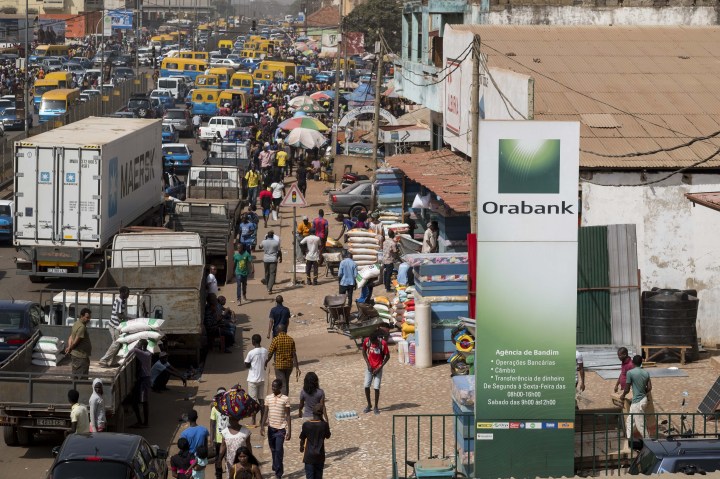ISS TODAY OP-ED
Guinea-Bissau cannot realise stability without free and fair elections

But with less than two months to go, the main political parties still haven’t agreed on the electoral rules.
Guinea-Bissau’s legislative elections scheduled for 4 June will have significant implications for achieving political stability in the country. Critical institutional reforms (notably a revision of the constitution), which have long been a source of division among political actors, will depend on the post-election balance of power.
The polls were scheduled following the dissolution of the National People’s Assembly (NPA) by president Umaro Sissoco Embaló in May 2022. The decree dissolving parliament cited persistent differences between the institution and other government branches, and the NPA’s refusal to have its accounts audited. It also cited parliamentary deputies’ rejection of an attempt to remove the immunity from prosecution that some of them hold.
Despite these official reasons, the dissolution is more about Embaló’s efforts to control political power. Since coming to office in February 2020, he has sought to shift away from Guinea-Bissau’s semi-presidential governance system. This Portuguese-style approach underpinned an equal balance of power between the executive, legislative and judicial institutions and their leaders.
Embaló has adopted a more presidential style, and worked to entrench it by creating a commission to draft a new constitution that will enshrine the presidential regime. He has done so even though the NPA has the power to initiate constitutional amendments, which must be approved by a two-thirds majority.
The deputies, including those who back the government, rejected the draft constitution proposed by the commission set up by Embaló. The draft strengthens presidential powers and reflects a desire to protect Guinea-Bissau’s constitutional checks and balances.
The country has had a semi-presidential regime since 1993 — a choice based on ending the omnipotence of former president João Bernardo Vieira, who used constitutional revisions to concentrate power in his own hands. In rejecting the draft constitution, deputies may also have sought to guarantee an inclusive political system that enables political parties, especially those represented in Parliament, to participate in governance.
The NPA submitted a counter proposal for constitutional reform that maintains the status quo but clarifies ambiguous provisions that have caused tensions between the president and prime minister. These tensions, combined with poor governance, are at the root of chronic political instability in Guinea-Bissau, evidenced by the numerous coups since independence from Portugal in 1974.
Before the NPA’s dissolution, deputies were expected to debate the counter-proposals. Attaining consensus over constitutional reform is key to Guinea-Bissau’s stability. However, this requires free and transparent legislative elections and results that are deemed credible by all political actors.
But less than two months before the elections, the main political parties have not reached consensus on the renewal of the Executive Secretariat of the National Electoral Commission (NEC). These parties include the African Party for the Independence of Guinea and Cape Verde, the Movement for Democratic Change, the Party for Social Renewal, the Union for Change and the Assembly of the People United-Democratic Party of Guinea-Bissau.
The mandate of the NEC, which is in charge of organising and supervising electoral processes, ended on 30 April 2022. Its former president, José Pedro Sambú, was elected President of the Supreme Court in December 2021, leaving the NEC head post vacant.
Since the country’s 2013 electoral reform, only magistrates nominated from the Superior Council of the Judiciary, elected by two-thirds of the NPA for a four-year term, have formed the NEC’s Executive Secretariat. While this depoliticised the NEC and enabled it to organise credible elections, it faced a major crisis of legitimacy after a post-election dispute in 2019. Political actors saw political control of the NEC as key to enhancing or protecting their electoral fortunes.
Without a Parliament to elect the chairperson and members of the NEC’s Executive Secretariat, and given the urgent need for a functional NEC ahead of voting, consensus on the electoral rules is vital. Credible elections also require Embaló to encourage dialogue among national stakeholders aimed at solving this legal challenge, which will have major political ramifications.
Guinea-Bissau’s international partners, namely the Economic Community of West African States, African Union, United Nations, European Union and Community of Portuguese Language Countries, should support the effort to find political consensus.
Having been involved in the country’s stabilisation process, these partners could help create a framework for dialogue between political and civil society actors. This will build a climate of confidence in the run-up to elections and in the revision of the constitution. DM
Paulin Maurice Toupane, Senior Researcher, Institute for Security Studies (ISS) Regional Office for West Africa, the Sahel and the Lake Chad Basin, Dakar.
First published by ISS Today.


















 Become an Insider
Become an Insider
Comments - Please login in order to comment.